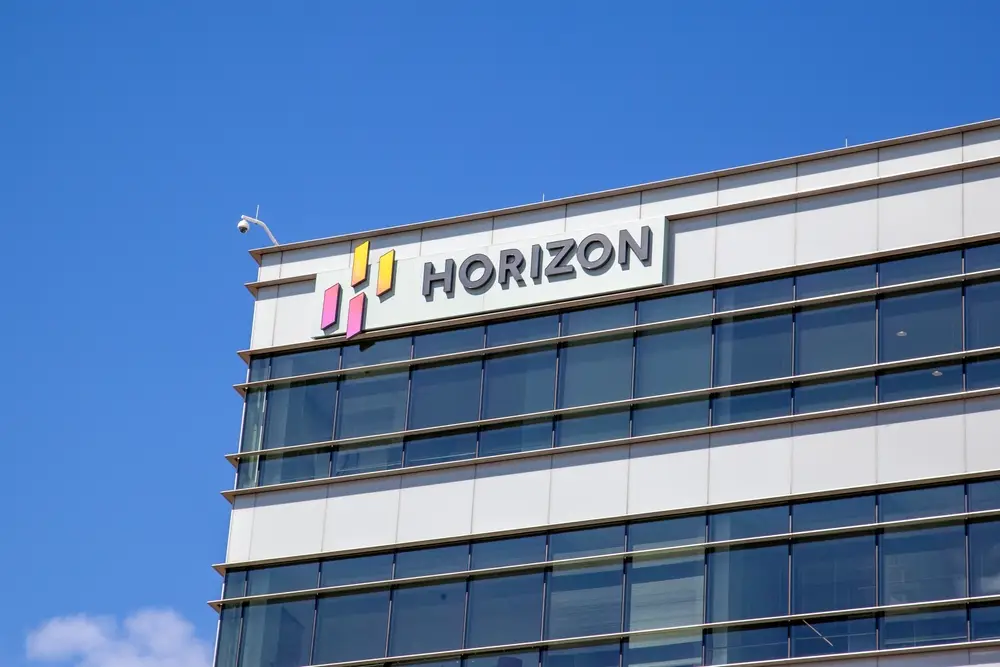Imagine trusting a drug to protect your vision—only to have it possibly destroy your hearing as well. It sounds unbelievable, but this is the reality of patients like Arizona man Daniel Weibel, who took Tepezza (teprotumumab-trbw) to treat thyroid eye disease (TED), and now asserts that the drug caused his hearing loss.
Along with patients across the country, Weibel is now suing Tepezza’s manufacturer, Horizon Therapeutics, after developing severe and irreversible hearing.
Learn about the risks of Tepezza, important information about the lawsuit, and recent updates to the case.
What is Thyroid Eye Disease (TED)?
Thyroid eye disease (TED), also called Grave’s orbitopathy, is often associated with the autoimmune disorder Grave’s disease. Patients with thyroid eye disease (TED) face a daily battle against symptoms such as eye-bulging, pain, redness, and swelling. TED can also lead to vision damage and, in severe cases, even blindness.
Though Tepezza’s manufacturer, Horizon Therapeutics, implied that these serious vision complications are common, statistics show they impact just 3 to 5% of TED patients.
Still, TED’s symptoms can substantially affect patients’ quality of life, leaving many longing for more effective treatment options.

The Miracle Drug Turned Nightmare
The FDA’s 2020 approval of the once-hailed revolutionary drug Tepezza brought hope to patients suffering from thyroid eye disease (TED). Prior, therapeutic options were scarce, inconsistent, and often invasive—but Tepezza entered the medical scene as an entirely different kind of treatment.
Known as a “biologic,” Tepezza’s active ingredient, teprotumumab-trbw, is a fully human monoclonal antibody derived from living cells. It blocks the insulin-like growth factor 1 receptor (IGF-1R) that contributes to TED.
Devastatingly, patients’ dreams of a miracle drug soon took a dark turn when many Tepezza users began experiencing debilitating and often permanent hearing problems after using the drug.
Though Horizon Therapeutics acknowledged hearing loss as a potential Tepezza complication, it was buried in a list of more common side effects like muscle cramps or spasms, nausea, hair loss, diarrhea, tiredness, and high blood sugar.
The company claimed serious ear problems like tinnitus, hypersensitivity to sounds, eustachian tube dysfunction, and partial and total hearing loss affected only 10% of patients in clinical trials. However, real-world patient experiences and further studies proved this to be a massive underestimate—as many as 65% of Tepezza users may suffer from hearing loss.
How Could Horizon Therapeutics Fail To Warn Patients?
This question continues to ring through the minds of affected patients and their loved ones, who demand answers from the drug manufacturer.
In 2022, Daniel Weibel became the first to sue Horizon Therapeutics. Diagnosed with thyroid eye disease, he began taking Tepezza after its release in 2020. Unaware of the drug’s risks, Weibel hoped Tepezza would be a breakthrough in his TED treatment plan. Neither he nor his doctor received any warning about its potential to cause severe hearing damage.
After just a few months of Tepezza use, Weibel developed irreversible hearing loss. He believes his injuries are the direct result of Horizon Therapeutics’ failure to provide appropriate warnings about Tepezza’s risks.
Tragically, Weibel’s story isn’t unique—and he isn’t the only one demanding accountability. One by one, individuals harmed by Tepezza began coming forward to file lawsuits against Horizon Therapeutics. Courts eventually consolidated the cases under the multidistrict litigation (MDL) process.
TED patients were already suffering from visual complications, and the lawsuits allege Tepezza cost them their hearing as well. The complaints make several claims, including that Horizon Therapeutics:
- Neglected to perform adequate safety testing on Tepezza, which could have detected its potential to cause widespread, irreversible hearing loss.
- Minimized the dangers of taking Tepezza, falsely claiming most hearing damage during the trials was reversible and minor.
- Failed to adequately warn patients and doctors about the true magnitude of Tepezza’s risks.
By early 2025, there were 200 cases pending against Horizon Therapeutics. As the MDL grows, those harmed by Tepezza are encouraged to seek legal counsel to secure their rights and obtain justice.
The Path Forward For Tepezza Victims
Despite its dangers to hearing health, Tepezza has not been recalled. It is still available as a prescription drug to treat thyroid eye disease (TED).
However, in July 2023, the FDA issued a warning about Tepezza’s potential to “cause severe hearing impairment including hearing loss, which in some cases may be permanent.” Concerned parties hope the warning will help doctors and patients make more informed decisions regarding Tepezza’s risks.
The Tepezza litigation is moving slowly, but progress is being made—giving hope to patients anxious to see Horizon Therapeutics held accountable. Bellwether trials, which will help predict the outcome of other Tepezza lawsuits under the MDL, have been set to begin in March 2026.
Rather than undergoing trial, many large companies choose to settle with plaintiffs. Though unlikely, it’s possible that Horizon Therapeutics may agree to a settlement before the first bellwether trial. However, in most cases, settlements occur if the initial bellwether trial reveals the potential for large jury awards.
In any case, plaintiffs hope for a favorable outcome that results in compensation for lost wages, medical bills, and pain and suffering. By continuing to stand up against Horizon Therapeutics, Tepezza victims send a striking message of accountability to powerful pharmaceutical manufacturers.




Add Comment